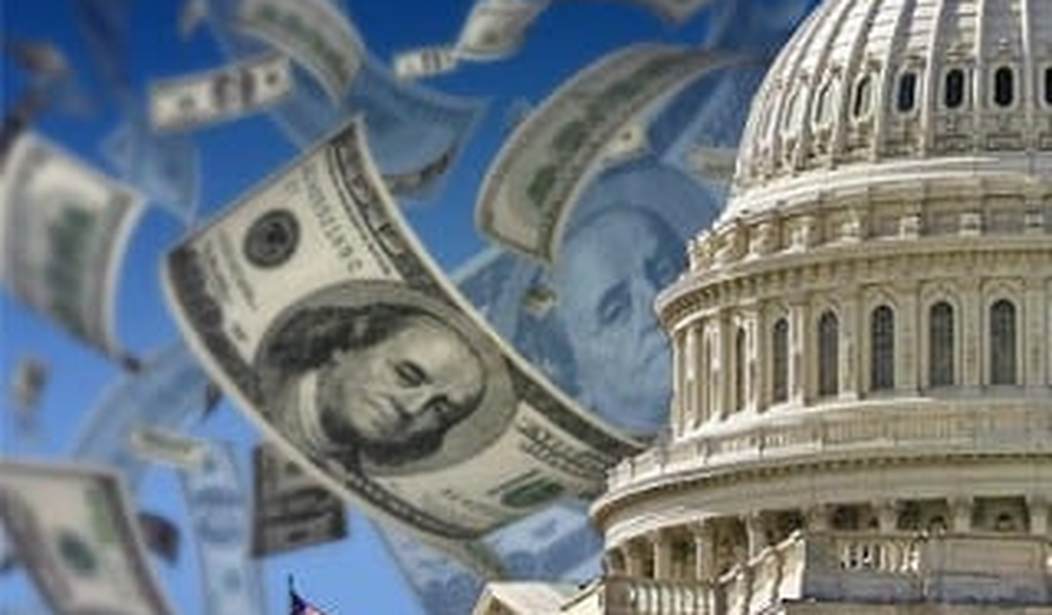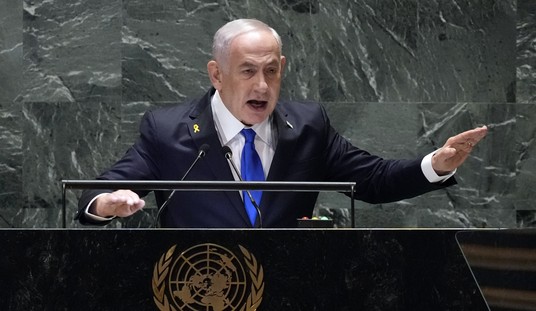WASHINGTON – With control of the U.S. Senate at stake, the waning days of the 2014 campaign are getting down to the really important part of American politics – raising money.
Just who will triumph in the vital “dialing for dollars” battle remains up in the air. Candidates aren’t required to turn in their quarterly fundraising reports to the Federal Election Commission until Oct. 15, leaving political pros like a racetrack tout waiting for his horse to come into the stretch.
This year the numbers may be more important than usual. With President Obama’s numbers abysmally low and a number of seats in conservative states to protect, Democrats are in danger of losing control of the upper chamber. If the GOP picks up six seats – highly probable according to most prognosticators – the party will control both the House and Senate, providing it with an opportunity to steamroll the White House.
Democrats, then, want money to hit the airwaves in the final weeks, perhaps convincing undecided voters that Obama isn’t that bad after all and that the candidate – fill in the blank – is certainly better than the Republican alternative. And the GOP wants to soak up all the available cash to maintain its edge.
Thus far this cycle, the Democratic Party apparatus has outraised its Republican counterpart. That advantage is not expected to show any change in this quarter’s reports.
But the old, reliable FEC reports aren’t nearly as helpful as they once were. As a result of the U.S. Supreme Court’s Citizens United decision in 2010, which opened the floodgates for nonprofits, corporations and labor unions to make unlimited, independent expenditures, big money is flying nonstop into campaigns from coast-to coast.
Under federal election law, official campaign organizations and outside groups are not permitted to coordinate their activities. This year, the spending is so heavy and erratic that campaign staffs are having difficulty figuring out where the money is coming from and for what purpose much of the time. The deluge from outside groups, who operate under different rules, now often plays a larger role on behalf of the candidate of their choice than the campaigns themselves.
Total outside spending during this cycle, according to the Sunlight Foundation, a nonprofit that advocates for open government, exceeds $330 million with a month to go – generally the most expensive month at that. In 2010, by means of comparison, outside spending on all federal elections, save for the amount expended by the political parties, amounted to a little more than $300 million.
In what is shaping up as the most expensive campaign in the country, pitting Kentucky Secretary of State Alison Lundergan Grimes, the Democrat, against incumbent Senate Republican Leader Mitch McConnell, two groups – the Kentucky Opportunity Coalition and Kentuckians for Strong Leadership – are well on their way to spending more than $20 million on McConnell’s behalf, with most of the cash going to television spots attacking Grimes and President Obama.
One radio ad funded by the Kentucky Opportunity Coalition went like this:
ANNOUNCER: “Obama’s famous for it. He’ll say anything to get what he wants. Hope and change. Keep your plan. Now Alison Grimes is following in his footsteps. Running false attack ads to hide who she really is: A liberal who’s wrong for Kentucky – just like Obama.
Grimes’ record? In 2011, she pledged support for Obama’s national party platform. After he waged War on Coal and pushed ObamaCare, Grimes endorsed his liberal agenda.
2012, Grimes endorsed Obama for re-election. Grimes even served at his re-election convention, to give him four more liberal years.
Now, Grimes is running for Senate – a rubber stamp for Obama’s agenda. And his top moneymen are bankrolling her campaign.
Alison Grimes: She’s not for Kentucky. And that won’t ever change.”
Both outfits are led by J. Scott Jennings, a native of Dawson Springs, Ky., a former McConnell aide and onetime deputy director of political affairs for President George W. Bush. By itself, according to the Sunlight Foundation, Kentuckians for Strong Leadership ranks tenth this cycle among independent spenders, having already anted up $7.6 million to attack Democrats.
According to Sunlight Foundation figures, the campaigns of McConnell and Grimes have spent a combined $22.1 in behalf of their candidates. Outside groups, meanwhile, have spent $22.7 million on the race with most of the funds going to attack ads.
But the big battle seems to be raging in North Carolina, where incumbent Kay Hagan, a Democrat, finds herself in a tough battle with Thom Tillis, the Republican speaker of the state House of Representatives. There, the two candidates combined have raised $21.7 million while outside groups have spent – not raised, spent — $37.6 million.
Of that $37.6, according to Sunlight, $25.4 million has gone for negative advertising. More than $6.5 million has gone for ads opposing Hagan while $18.8 million for ads opposed Tillis.
The biggest outside spender in North Carolina thus far is the Senate Majority PAC, a super PAC – a group that can accept unlimited political donations — directed by former staffers for Senate Democratic Leader Harry Reid, of Nevada. It has dispatched more than $10 million on Hagan’s behalf to the Tar Heel State, more than twice as much as the official Democratic Senatorial Campaign Committee.
Overall, the Senate Majority PAC has dealt out $32 million this cycle.
Tillis, meanwhile, is receiving heavy financial support from the U.S. Chamber of Commerce, the National Republican Senatorial Committee and the National Rifle Association, among others.
Democrats this cycle have exceeded fundraising expectations thanks in large measure to the efforts of the House and Senate fundraising committees and their own Super PACs, like the Senate Majority PAC.
But it appears Republicans will hold the edge when all is said it done as the result of tax-exempt nonprofit groups that contribute heavily to their side. The two big dogs, in this case, are Americans for Prosperity, founded by the billionaire Koch brothers who have earned Democratic scorn over the years, and Crossroads GPS, a so-called dark money group that doesn’t register with the FEC and refuses to identify its donors. In that way it differs from a super PAC that identifies every donor who gives more than $200.
Crossroads GPS was founded by Karl Rove, who served as George W. Bush’ political adviser during his eight years in the White House. His group is looking to pour $75 million into battleground states in hopes of claiming a Republican majority in the Senate to go along with the GOP majority that already exists in the House.
The Koch interests, according to the New York Times, plan to spend $300 million by Election Day.
Democrats also have large givers but not as many as the Republicans. Tom Steyer, a billionaire who founded Farallon Capital Management, a San Francisco hedge fund, in 1986, created his own Super PAC, the Next Generation Climate Action Committee. Steyer gave $40.9 million to his group this cycle. He also sent $5 million to Reid’s Senate Majority PAC.
Outside spenders have some distinct advantages over a candidate’s own fundraising operations. While many groups maintain sky’s-the-limit capabilities, the individuals actually seeking office can accept no more than $2,600 per election from individual donors and $5,000 per election from a PAC – the old system corporations and labor unions used to funnel money to their friends that now operate under different, more restrictive rules than Super PACs.
Candidates cannot accept contributions directly from businesses or unions. Those independent organizations can, thanks to Citizens United and subsequent high court rulings that hold any restrictions violate free speech rights under the First Amendment.
In many ways, then, outside organizations have become more powerful and influential than a candidate’s own operation even though the person running for office has no say in how the independent groups spend their money. It also naturally makes the candidate more beholden to those with the huge bank accounts who decide whether or not to support a particular candidate.
Democrats, who instigated fundraising reforms in post-Watergate America, instituting greater restrictions on the money flowing into campaigns, last month pushed a constitutional amendment intended to overturn decisions like Citizens United and allow lawmakers to place limits on money in elections. It drew 54 Senate votes – 13 short of the number required – with Republicans standing in opposition.









Join the conversation as a VIP Member